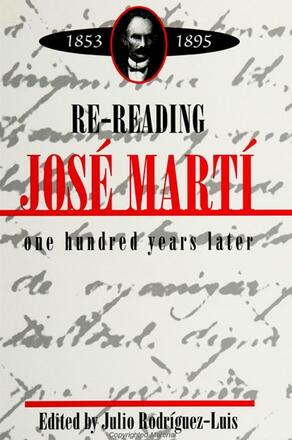
Re-reading Jose Martí (1853-1895)
One Hundred Years Later
Alternative formats available from:
Re-evaluates Jose Marti's contribution to Latin America's literature and political evolution.
Description
This is one of the very few books on the Cuban political thinker and poet Jose Martí available in English. Written by renowned Latin Americanists, the book explores the man who created the notion of Latin America--Nuestra America--(also the title of Martí's seminal text) as a distinct cultural and racial identity. Martí's influence as a writer in Latin America was almost as great as the one he had as a statesman. An extraordinarily innovative poet and prose writer, he contributed effectively to modernizing Latin American literature, linguistically and thematically. One hundred years after Martí's death, Re-reading Jose Martí (1853-1895) re-evaluates his contribution to Latin America's literature and political evolution.
Through his journalistic writings Martí was tremendously influential in shaping the notion of a distinct Latin America as well as in predicting the United States' imperialistic tendencies regarding those countries. Revered in Cuba, Martí, more than any other patriot, stirred nationalistic feelings necessary to organize the war that finally secured Cuba's independence from Spain.
Contributors include Ottmar Ette, Cathy L. Jrade, Julio Ramos, Susana Rotker, Lourdes Martinez-Echazabal, Enrico Mario Santi, Rafael Saumell-Munoz, Ivan A. Schulman, and Adalberto Ronda Varona.
Contributors include Ottmar Ette, Cathy L. Jrade, Julio Ramos, Susana Rotker, Lourdes Martinez-Echazabal, Enrico Mario Santi, Rafael Saumell-Munoz, Ivan A. Schulman, and Adalberto Ronda Varona.
Reviews
"It is by far the best collection of essays about one of the most significant and least understood thinkers of nineteenth-century Latin America. Some essays are simply extraordinary. They give a good sense of the complexities, contradictions, and passion with which Jose Marti engaged in literary pursuits and politics. The reader who does not know Marti gets a sense of his importance; the reader who knows Marti is challenged to revise assumptions and explore new suggestive avenues in his work. The essays move easily between periods and authors, demonstrating the centrality of Marti for the entire continent up to the present." -- Ivan Jaksic, University of Notre Dame
"It is fascinating to take a thinker of Marti's stature who wrote over one hundred years ago and insert his perspective in the context of our present-day issues. I don't know of any other collection of Marti studies that achieves this goal as strongly. This collection contains some bold and innovative work." -- Ofelia Schutte, Universityof Florida